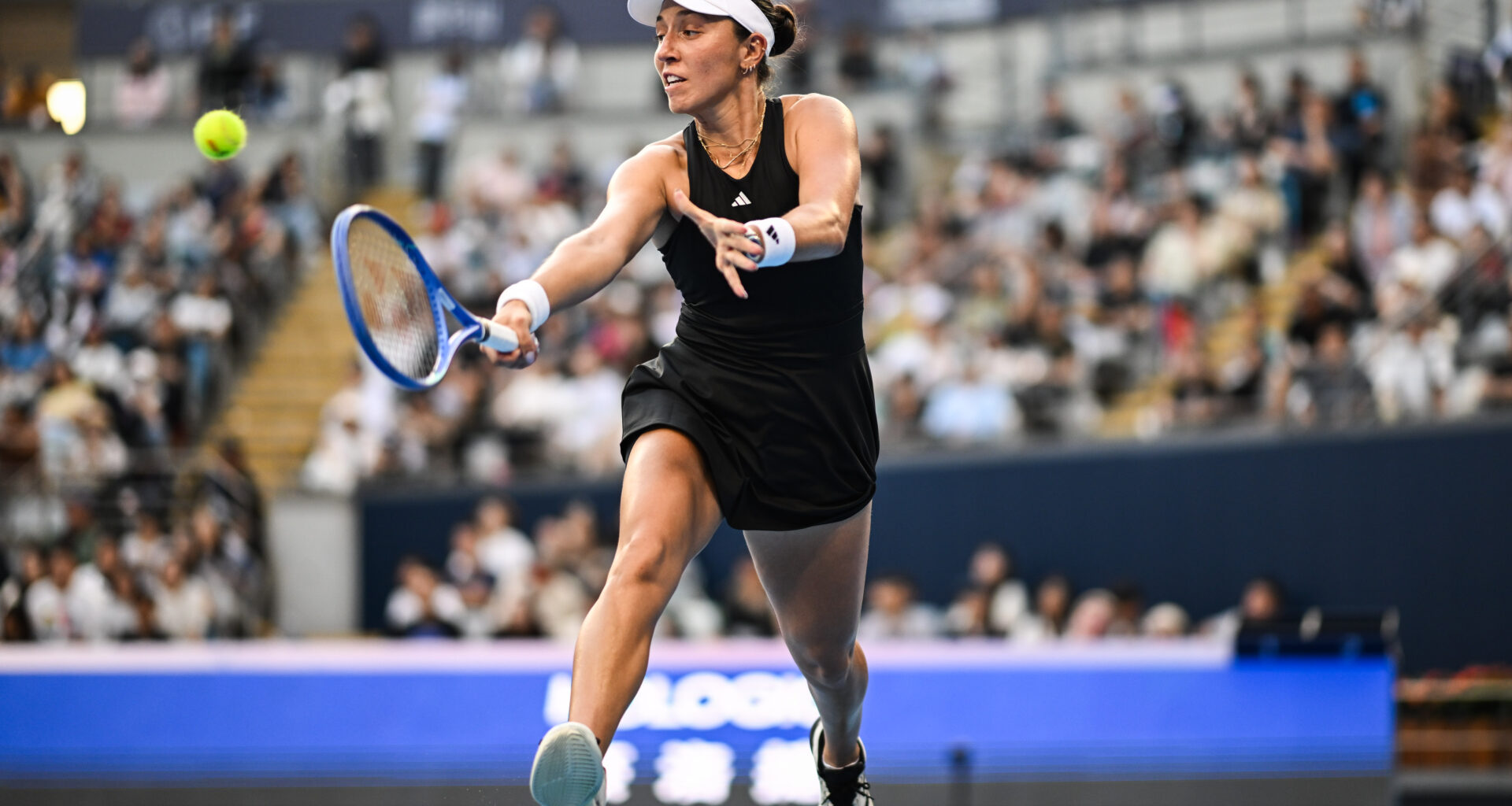No. 5 seed Jessica Pegula fended off three match points in a knife-edge second-set tiebreak to defeat No. 30 seed Emma Raducanu 3-6, 7-6(9), 6-0 in 2 hours and 21 minutes to reach the China Open fourth round.
Beijing: Scores | Draws | Order of play
The result marks the first time Pegula has won from match point down since the 2024 Berlin final, in which she staved off five championship points to defeat Anna Kalinskaya 6-7(0), 6-4, 7-6(3). In her very next match, she lost from match point up to Raducanu 4-6, 7-6(6), 7-5 in the Eastbourne second round. Having turned the tables on the Briton, Pegula now leads their head-to-head 3-1.
It is the second time in as many weeks that Raducanu has lost from three match points up, and via an overtime second-set tiebreak, to a former Top 3 opponent. In the Seoul second round, she squandered a 5-2 second-set lead to fall to Barbora Krejcikova 4-6, 7-6(10), 6-1. Raducanu led 5-2 in both tiebreaks; she has now lost six of her past seven tiebreaks dating back to June.
“That was a crazy match,” Pegula said in her on-court interview. “That was really intense. But I got myself back into the tiebreak and just wanted keep pressure on. When she hit the double fault [leading 5-4], I knew I was still playing some good tennis. It was right there, it was really, really close. And to be honest, I think I got a little lucky on those two backhand winners [both down match point]. But I just tried to keep fighting for as long as I could.”
Pegula advances to the Beijing last 16 for a second straight year, and will face Marta Kostyuk there after The No. 23 seed defeated qualifier Aliaksandra Sasnovich 6-4, 6-2. Pegula leads their head-to-head 3-1, including a 6-2, 6-3 victory in their most recent meeting in the Miami fourth round this March.
How Pegula pulled off the comeback: The first two sets were high-quality, filled with riveting exchanges that showcased both players’ court-craft and athleticism. Raducanu was faster out of the blocks, saving break point in the first game by finishing one of the best rallies of the match with a forehand pass and leaping out to a 4-1 lead.
By contrast, Pegula double faulted en route to dropping serve in her first service game, and only started to click on her forehand side in the sixth game. It was too late to save the set, though — Raducanu’s own forehand was also on song, and winners from that wing sealed her first set point and paved the way to a break for 2-1 in the second set.
Next, it was Pegula’s turn to win a spectacular exchange, defending valiantly with Raducanu at net and being rewarded with a volley error from the 22-year-old — and, subsequently, an immediate break back. Neither player would drop serve for the rest of the set.
Despite Pegula’s modesty in referring to her “luck” off that wing, the two backhands she produced to save the first two match points against her were truly spectacular. The first was a half-volley one-two punch down the line, redirecting all the pace from a hefty Raducanu return. On the second, a net cord gave Raducanu a forehand sitter to power away — but, from far out of position, Pegula somehow redirected that down the line for a winner as well. The third match point was saved as Raducanu sent a forehand long — one of three consecutive errors from that side with which she lost the set.
As in Seoul, the decider was a formality as Pegula went from strength to strength while Raducanu found herself out of further ideas.

